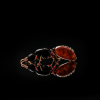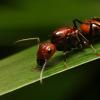I am starting this topic to help the people who have recently caught a Pseudomyrmex queen or obtained a colony. since the care is similar to other ants that are arboreal, you can ask a question about tree-dwelling ants also. Also feel free to ask about housing different Pseudomyrmex ants.
- Formiculture.com
- Forums
- Gallery
- Members
- Member Map
- Chat



















